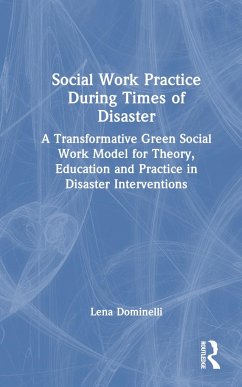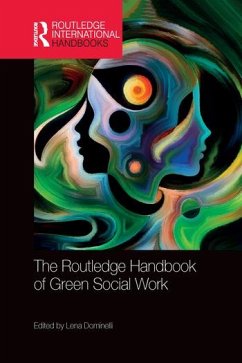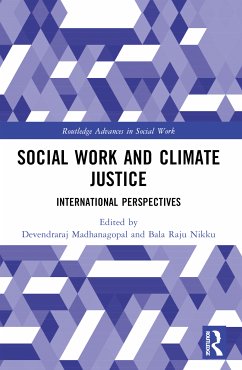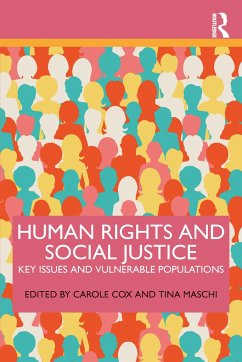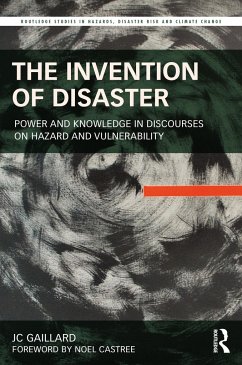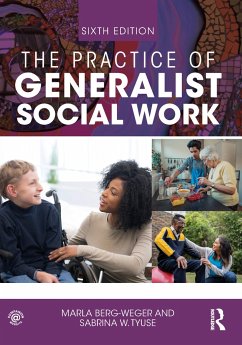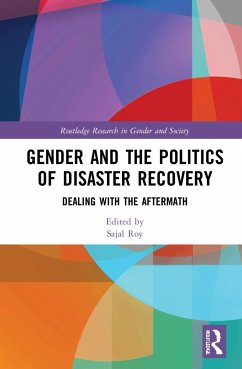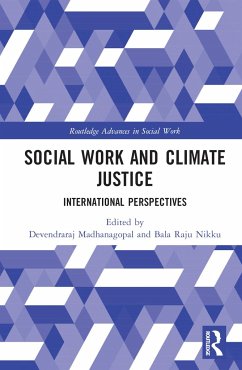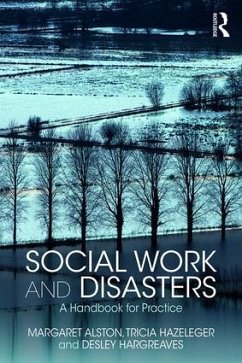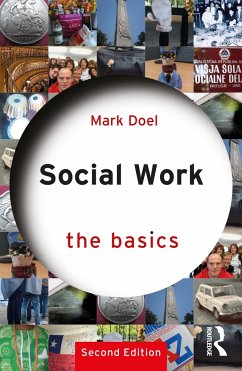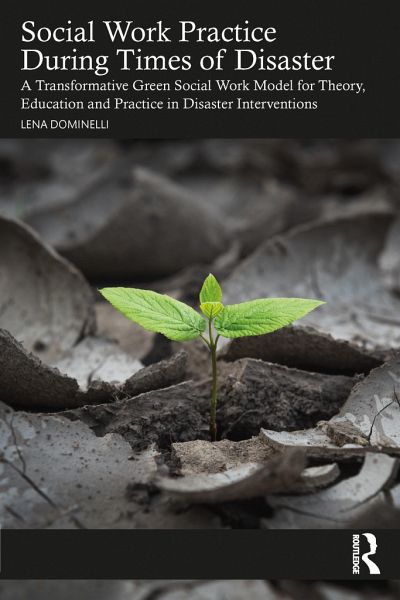
Social Work Practice During Times of Disaster
A Transformative Green Social Work Model for Theory, Education and Practice in Disaster Interventions
Versandkostenfrei!
Versandfertig in 6-10 Tagen
37,99 €
inkl. MwSt.
Weitere Ausgaben:

PAYBACK Punkte
19 °P sammeln!
Disasters affect people individually and collectively in their communities, national societies, and the international sphere and in any setting from the home to the planetary level. Furthermore, these disasters can be complex, multi-layered and what happens in one location can affect sentient beings elsewhere directly and/or indirectly. These create interdependencies between people, the flora, fauna, and physical environment that require the holistic, transdisciplinary approaches to disasters that are advocated by green social work perspectives.Using case studies drawn from practice and resear...
Disasters affect people individually and collectively in their communities, national societies, and the international sphere and in any setting from the home to the planetary level. Furthermore, these disasters can be complex, multi-layered and what happens in one location can affect sentient beings elsewhere directly and/or indirectly. These create interdependencies between people, the flora, fauna, and physical environment that require the holistic, transdisciplinary approaches to disasters that are advocated by green social work perspectives.
Using case studies drawn from practice and research to explore the skills and knowledge needed by social workers to practice within disaster situations, this book illustrates what good social work practice during times of disaster looks like. It highlights the theories, skills and expertise needed to intervene effectively in specific disaster situations and provides case studies as a major vehicle for considering ethical dilemmas and skills sets that facilitate interventions in specific disasters. Part One focuses on disasters that afflict the UK where social workers may be part of the emergency response including floods, droughts, cold-snaps, windstorms, storm surges, fires, chemical discharges, terrorism and Covid-19. And, given the interdependent nature of disasters, this section also draws upon knowledge from the international sphere to show how the local and global are interlinked. Part Two considers disasters that dominate in other parts of the world, but which have impacts upon the UK, either because its personnel go overseas to provide humanitarian aid, or because the victim-survivors of such disasters seek sanctuary in/migrate to the UK. These disasters include refugees from earthquakes, volcanic eruptions, hurricanes, armed conflict and climate change. The ethical dilemmas that social workers face during all disasters are particularly poignant in the case of asylum seekers and refugees.
This book will be of interest to all social work professionals, practitioners in emergency and health settings working with social workers, academics and students both in the UK and around the world.
Using case studies drawn from practice and research to explore the skills and knowledge needed by social workers to practice within disaster situations, this book illustrates what good social work practice during times of disaster looks like. It highlights the theories, skills and expertise needed to intervene effectively in specific disaster situations and provides case studies as a major vehicle for considering ethical dilemmas and skills sets that facilitate interventions in specific disasters. Part One focuses on disasters that afflict the UK where social workers may be part of the emergency response including floods, droughts, cold-snaps, windstorms, storm surges, fires, chemical discharges, terrorism and Covid-19. And, given the interdependent nature of disasters, this section also draws upon knowledge from the international sphere to show how the local and global are interlinked. Part Two considers disasters that dominate in other parts of the world, but which have impacts upon the UK, either because its personnel go overseas to provide humanitarian aid, or because the victim-survivors of such disasters seek sanctuary in/migrate to the UK. These disasters include refugees from earthquakes, volcanic eruptions, hurricanes, armed conflict and climate change. The ethical dilemmas that social workers face during all disasters are particularly poignant in the case of asylum seekers and refugees.
This book will be of interest to all social work professionals, practitioners in emergency and health settings working with social workers, academics and students both in the UK and around the world.





